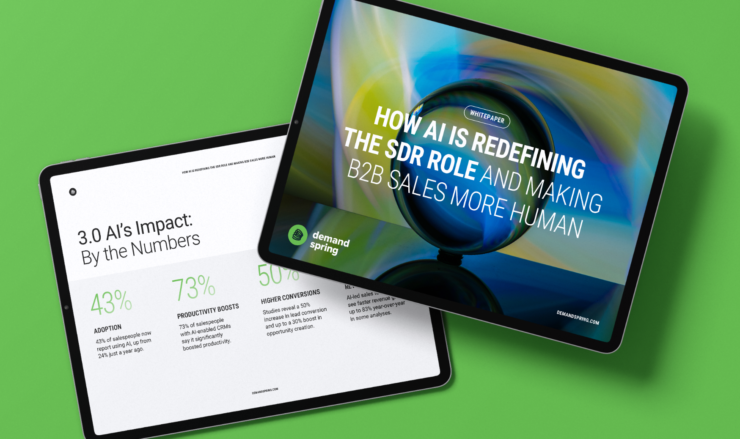AI has had a significant impact on both operations and marketing. This trend is closely linked to the rising popularity of Customer Data Platforms (CDPs) among businesses aiming to improve their use of customer data. Implementing a CDP has proven to deliver positive results in terms of personalization, customer experience, and data protection. However, it’s essential for teams to fully grasp the tool’s potential before integrating it into their operations to avoid overlap with existing platforms or underutilization.
To start discussing CDPs, it’s crucial to differentiate between Customer Relationship Management (CRMs) systems, CDPs, and Data Management Platforms (DMPs). These three technologies share similarities, focusing on enhancing customer segmentation and satisfaction. However, they differ in their capabilities, such as data management, privacy concerns, data storage, and ownership. The CDP market is expected to grow by 17.9% over the next decade, indicating a shift towards innovative technologies.
In an ideal scenario, Marketing and Sales work harmoniously, aligned towards common goals with seamless coordination, resulting in improved productivity and successful outcomes. Unfortunately, the reality often differs. Processes, data, and vital information are frequently segregated into silos, hampering effective communication and collaboration between the two teams. This leads to missed opportunities, inefficient operations, and a disjointed customer experience.
In the B2B landscape, where relationships and trust are crucial, CDPs play a pivotal role in enhancing collaboration between marketing and sales teams. By providing a unified view of customer data, CDPs facilitate strategic alignment, enabling both teams to work cohesively towards shared objectives. This synergy not only enhances efficiency but also improves the overall customer experience, positioning businesses for sustainable growth in the competitive B2B market. CDPs excel in providing deep insights into buyer journeys, allowing marketers to anticipate needs, tailor their communication and offers, and enhance customer satisfaction. They also positively influence Customer Lifetime Value (CLV) by improving targeting, conversion rates, and focusing sales and marketing strategies, efforts, and budget allocation.
In the realm of marketing, customer data has become the most crucial asset. Understanding customer behavior and preferences is essential. CDPs collect, organize, and analyze vast datasets, creating a holistic and detailed customer profile. This ensures reliable data for decision-making processes, particularly in marketing and sales strategies. CDPs excel at focusing on first-party data, which enhances data accuracy and mitigates potential issues arising from third-party data sources or new trends in AI implementation.
Once a CDP has completed the data ingestion process, resolution, and processing, it gains the ability to identify audiences and allows marketers to create up-sell or cross-sell opportunities by identifying profitable segments. This significantly enhances lead nurturing processes and has a direct impact on lead scoring. Efforts can be tailored, and budgets can be allocated more effectively.
The incorporation of CDPs into the Martech stack has transformed how companies use data for marketing. CDPs act as tools for data synchronization and syndication, bridging different customer information sources to provide a better understanding of customer journeys and breaking down data silos. This enables the use of high-quality data to trigger automated responses and campaigns that are relevant and timely.
How CDPs Can Help You Segment Smarter, Not Harder
Ugh, that sinking feeling. You’ve poured your heart into crafting the perfect B2B marketing campaign, targeting the ideal decision-makers with pinpoint accuracy. But then reality smacks you in the face. Your customer data? Scattered across a dozen different platforms – website analytics, CRM, marketing automation software – a total mess.
Been there, done that, right B2B marketers? We feel you. Siloed data is the arch-enemy of effective campaigns. It leads to:
- Wasted Hours: Juggling spreadsheets and piecing together customer journeys feels like an eternity. Time you could be spending on brainstorming killer campaigns. According to Gartner, 73% of marketers report wasting marketing budget due to poor data quality.
- Off-Target Messaging: Blasting generic messages into the void? Not exactly a recipe for B2B marketing success. Siloed data means poor audience segmentation and missed opportunities. 60% of B2B companies admit to struggling to personalize messaging due to fragmented data.
- Attribution Nightmares: Is your email campaign driving sales, or is it all thanks to that webinar you ran last week? Without clear attribution data, optimizing your marketing spend is like throwing darts blindfolded. 63% of marketers lack confidence in their ability to attribute revenue to specific marketing channels.
- Inconsistent Customer Experiences: B2B buyers expect a smooth journey across all touchpoints. But with fragmented data, your messaging can be all over the place, confusing your audience. 80% of customers say the experience a company provides is just as important as its products and services.
A CDP takes all your customer data – website behavior, CRM info, social media interactions – and merges it into a single, unified profile for each account and contact. This gives you a complete picture of the customer journey, allowing you to:
- Get a holistic view of each customer, so you can understand their needs and tailor your messaging accordingly.
- Slice and dice your audience based on firmographics, technographics, and behavior. This laser-focused segmentation ensures your campaigns reach the right people at the right time.
- Empowers your Account-Based Marketing (ABM) strategy by providing a 360-degree view of target accounts. Personalize campaigns, track progress effectively, and close deals faster.
- Tracks customer interactions across the entire buying journey, giving you clear attribution data to optimize your marketing spend and maximize ROI.
- Lets you orchestrate omnichannel marketing, delivering consistent messaging that resonates throughout the customer journey.
The synergy between marketing operations and CDPs has reshaped marketing strategies, serving as vital bridges between fragmented data sources and ensuring a unified view of customer information. By leveraging CDPs effectively, companies can anticipate customer needs, tailor communication, and enhance customer satisfaction. Are you ready to optimize your Martech stack? Click here to get started.




